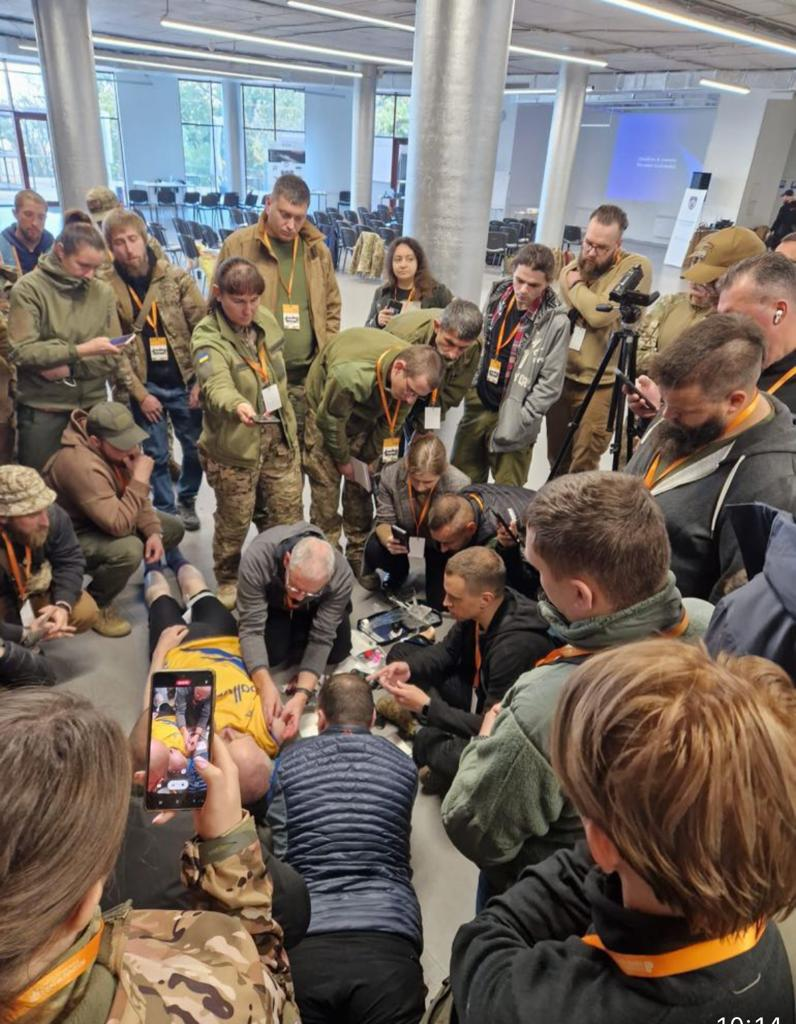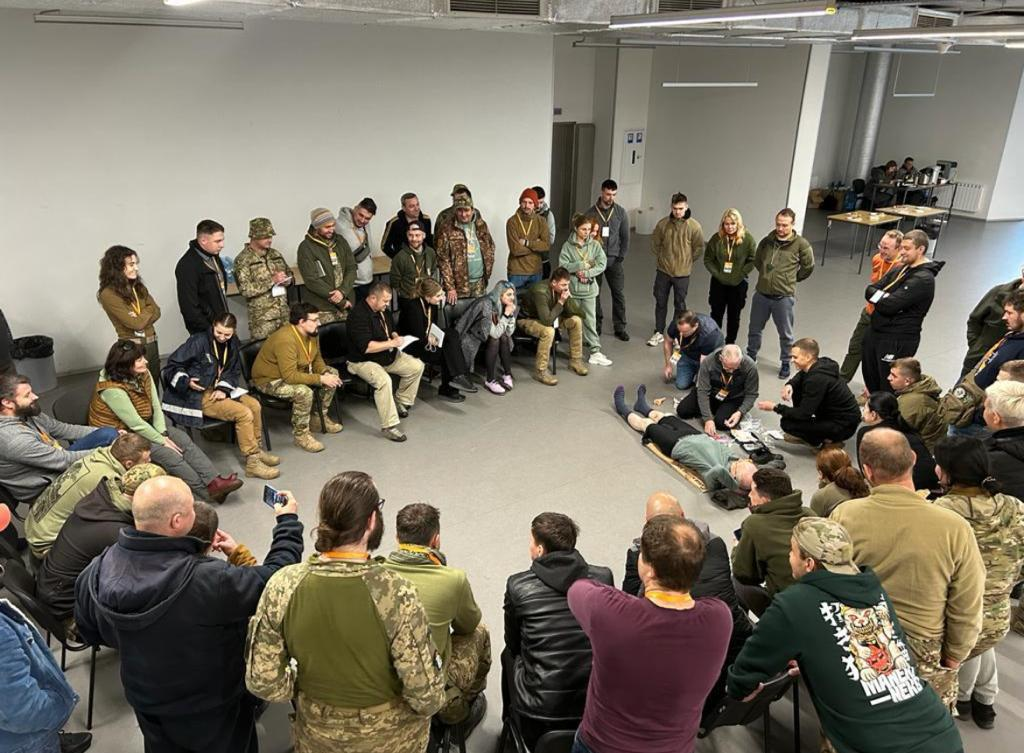Ireland should send more military equipment to Ukraine, TD Cathal Berry has said after a visit to the country.
Deputy Berry previously served as doctor for many years in the Defence Forces and recently visited Kyiv as part of a team of six Irish medics to teach battlefield medicine to members of the Ukrainian military.
The Ukrainian capital is one of the safer parts of the country, thanks to what Deputy Berry described as its “very impressive” air defence system.
“Any projectile that comes in whether it’s a drone or whether it’s a missile, the vast majority, up to 90% are shot down long in advance before they get to Kyiv,” he told Moncrieff.
“We spent a few hours in an air raid shelter just as a precaution but as a general rule. Kyiv is quite safe at the moment.”
 Cathal Berry in Ukraine. October 2023. Image: Cathal Berry
Cathal Berry in Ukraine. October 2023. Image: Cathal BerryAfter the conflict broke out last year, the Irish Government sent the Ukrainian armed forces 5,000 units of ready-to-eat meals and 200 units of body armour.
Then-Minister of Defence Simon Coveney described it as a “tangible demonstration” of Ireland’s support for Ukraine but Deputy Berry thinks more can be done.
“I think Ireland could do a little bit more if we had more armoured ambulances,” he said.
“We could provide ambulances; Ireland only has two armoured ambulances in the Defence Forces and they’re deployed overseas at the moment.
“I think we could do more from an air defence point of view as well; Ireland does have a limited amount of radar and air defence capability and we could have provided Ukraine with that - and we still could to assist in that air defence umbrella and keep people safe in the capital at least.”
Battlefield lessons
Overall, Deputy Berry found his trip to Kyiv “very uplifting” and he was impressed by how highly motivated Ukrainians are to learn and defeat the Russians once and for all.
“They really, really believe in themselves, they believe in their military and they believe they’re on the right side of history,” he said.
“They’re fighting for their existence; if they lose, the country will be destroyed.”
 Cathal Berry in Ukraine. October 2023. Image: Cathal Berry
Cathal Berry in Ukraine. October 2023. Image: Cathal BerryThe Irish team primarily focused on teaching the Ukrainians how to deal with haemorrhages and how to stop wounded soldiers and civilians from bleeding to death after Russian attacks.
It is a world away from where Deputy Berry usually treats patients.
“Most people would practise medicine either in a hospital setting or in a primary care centre and surgery would be done inside the controlled environments of a hospital,” he said.
“These people are really working in tactical medicine, really not only is the patient at risk but also the person providing the care as well.
“Most of these would be operating with 600 metres of the frontline and their job is travel in an armoured ambulance or a pickup truck, pick up the patients, stabilise the patients and evacuate them back [for] more serious treatment.”
In a statment to Newstalk, the Department of Defence said Government policy is not to send lethal equipment to Ukraine.
"Our full share of funding – approximately €122 million to date – is, therefore, directed exclusively toward non-lethal support," a spokesperson said.
"This is the basis on which Ireland’s involvement in the European Peace Facility was decided by the Government and agreed with and understood by our EU partners."
Main image: Cathal Berry in Ukraine









